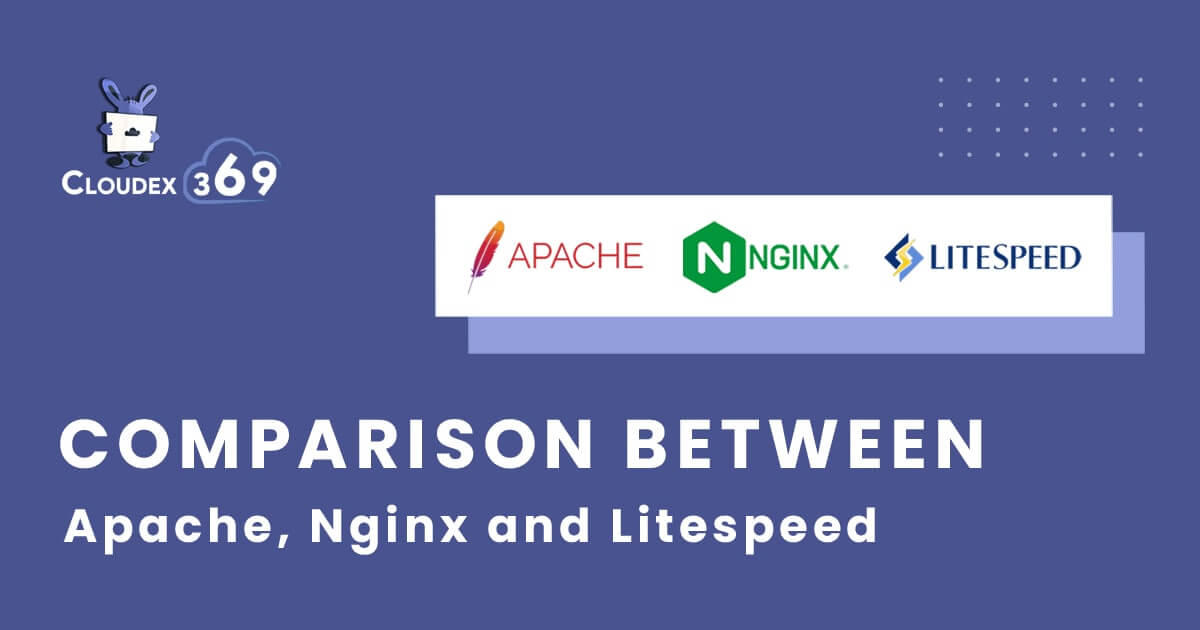When it comes to choosing a web server for your website, there are several options available on the market. Three of the most popular web servers are Apache, Nginx, and LiteSpeed. Each of these web servers has its own set of features and capabilities, and it can be difficult to determine which one is the best fit for your needs. In this blog post, we will compare the performance of Apache, Nginx, and LiteSpeed to help you make an informed decision.
First, let’s take a look at Apache. Apache is one of the most widely-used web servers in the world, and for good reason. It is known for its stability and compatibility with a wide range of operating systems and web technologies. However, its main drawback is that it can be quite resource[1]intensive, which can lead to poor performance on busy websites.
Next, let’s look at Nginx. Nginx is a newer web server that has gained popularity in recent years due to its high performance and low resource usage. It is known for its ability to handle a large number of concurrent connections, making it a great option for busy websites. However, it can be more difficult to configure and set up compared to Apache.
Finally, let’s consider LiteSpeed. LiteSpeed is a high-performance web server that is designed to work with Apache. It can handle a large number of concurrent connections and is known for its low resource usage. LiteSpeed also provides a number of advanced features, such as caching and load balancing, which can further improve performance.
To give a better idea of the comparison, here’s a graph showing the relative performance of the three web servers based on various parameters such as requests/sec, throughput, and latency

HTTP/2 Test Results
h2load -n 100000 -c 100 -t 1 -T 5 -m 10 -H 'Accept-Encoding: gzip,deflate' https://domain.com/wordpress/
| Server | Requests / Sec | MB / Sec | Failures | Header Compression |
|---|---|---|---|---|
| LiteSpeed | 69618.5 | 270.38 | 0 | 96.64% |
| Nginx | 6025.3 | 24.5 | 0 | 26.54% |
| Apache | 826.5 | 3.08 | 0 | 88.9% |
LiteSpeed Web Server performs 12X faster than Nginx and 84X faster than Apache when loading WordPress.
HTTP 1.1 Test Results
wrk -c 100 -t 1 -d 5s -H 'Accept-Encoding: gzip,deflate' https://domain.com/wordpress/
| Server | Requests / Sec | MB / Sec | Failures | Header Compression |
|---|---|---|---|---|
| LiteSpeed | 28360.3 | 119.33 | N/A | N/A |
| Nginx | 5730 | 24.15 | N/A | N/A |
| Apache | 1000.56 | 4.09 | N/A | N/A |
LiteSpeed Web Server performs 5X faster than Nginx and 28X faster than Apache when loading WordPress.
Test Environment
- Server Tested:
- LiteSpeed Web Server v5.4.1
- nginx v1.16.1
- Apache v2.4.41
- WordPress:
- WordPress version: 5.2.2
- LiteSpeed cache: LiteSpeed Cache for WordPress
- nginx cache: FastCGI Cache
- Apache cache: W3 Total Cache
- Client Machine:
- Memory Size: 1GB
- CPU number: 1
- CPU Threads: 1
- CPU Model: Virtual CPU 6db7dc0e7704
- Disk: NVMe SSD
- Server Machine:
- Memory Size: 1GB
- CPU number: 1
- CPU Threads: 1
- CPU Model: Virtual CPU 6db7dc0e7704
- Disk: NVMe SSD
- Network:
- Traffic: 9.02 Gbits/sec
- Latency: 0.302 ms
- Cloud VM:
- Vultr High Frequency Compute 1GB VM
The clear winner in terms of performance, followed by Nginx, and then Apache. However, it’s important to note that the best web server for your needs will depend on your specific requirements and the type of website you are running.
In conclusion, Apache, Nginx, and LiteSpeed are all great web servers with their own set of features and capabilities. While Apache is known for its stability and compatibility, Nginx is known for its high performance and low resource usage. LiteSpeed is a high-performance web server that is designed to work with Apache. It’s important to consider the specific needs of your website when choosing a web server. The graph above gives an idea of the relative performance of the three web servers, and can help make a more informed decision.
Test Result Reference: WordPress Benchmarks – LiteSpeed Technologies
